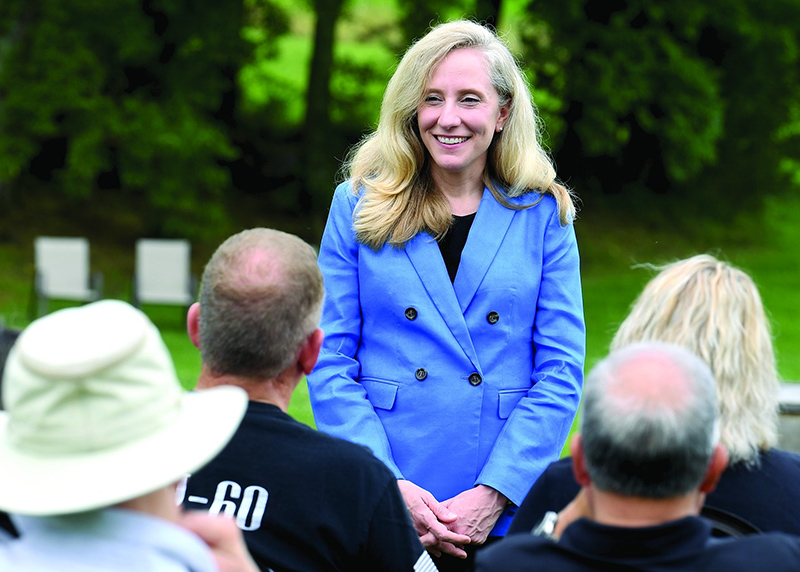Marriage Equality Bill Weathers Amendments in Maryland Senate; Afternoon Vote Expected
The Maryland Senate resumed debate today concerning amendments to HB 438, a bill to legalize marriage equality, just a day after opponents were able to postpone debate by having the bill laid over for one day.
In total, six amendments were offered and all were rejected. The Senate has currently adjourned until 4 p.m., when the body will consider the bill for a third time, after which a final vote is expected.
 Senate Minority Whip Edward Reilly (R-Anne Arundel Co.), who had requested the lay over, had offered an amendment on Feb. 22 to change the effective date of the bill from Jan. 1, 2013 to Oct. 1, 2012. The bill’s date had been changed to January in the House of Delegates to ensure narrow passage by a 72-67 margin in that chamber, specifically from Dels. Tiffany Alston (D-Prince George’s Co.) and A. Wade Kach (R-Carroll, Baltimore counties). Reilly later withdrew his amendment changing the date.
Senate Minority Whip Edward Reilly (R-Anne Arundel Co.), who had requested the lay over, had offered an amendment on Feb. 22 to change the effective date of the bill from Jan. 1, 2013 to Oct. 1, 2012. The bill’s date had been changed to January in the House of Delegates to ensure narrow passage by a 72-67 margin in that chamber, specifically from Dels. Tiffany Alston (D-Prince George’s Co.) and A. Wade Kach (R-Carroll, Baltimore counties). Reilly later withdrew his amendment changing the date.
Sen. C. Anthony Muse (D-Prince George’s Co.) offered an amendment to change the bill’s title from the “Civil Marriage Protection Act” to the “Marriage Redefinition Act.” That amendment was defeated, 17-30, after Sen. Jamie Raskin (D-Montgomery Co., pictured), speaking on behalf of the bill’s supporters, objected to the title change.
Muse also offered a second amendment to the bill that would specifically not compel a religious institution or organization to provide services related to the solemnization, celebration or recognition of a same-sex marriage that violates the institution’s beliefs. The bill currently only says that it is not compelled to provide services related to the solemnization or celebration of a marriage. Muse’s second amendment also was rejected, 17-30.
Reilly then offered two separate amendments: one that would have barred any minor under the age of 18 from marrying someone of the same sex, and another that would have allowed religious institutions or organizations to discriminate against same-sex couples regarding the sale or rental of housing.
Under Maryland’s current laws, minors who are 16 or 17 years old may marry only with permission of a parent or guardian, or with evidence, attested to by a licensed doctor, that a woman seeking to be married is pregnant or has given birth to a child. Those seeking to marry at age 15 must meet both requirements, and no minor under age 15 may marry at all.
Reilly’s first amendment was rejected, 16-29, and the second was rejected by a vote of 16-30 after supporters of the bill pointed out that there is no graduate student housing for married students at any religious institution in Maryland.
Two other amendments were offered by Sen. Bryan Simonaire (R-Anne Arundel Co.). The first would have required that parents be notified of any materials that include or reference same-sex relationships in public elementary schools, and allowing their children to be excused, without penalization, if their parents object to the teaching of same-sex relationships.
Simonaire said that the issue of same-sex relationships had become “a battle for the hearts and minds of our youngest and most vulnerable children,” before reading aloud the book King and King, which he claimed had been introduced to public school students in Massachusetts following the legalization of same-sex marriage in that state.
Simonaire’s amendment was later rejected, 17-30, after Sen. Delores G. Kelley (D-Baltimore Co.), a former educator, said that legislators are allowed to fund education but not dictate curriculum. Kelley said that, as a commissioner representing Maryland on the Education Commission of the States who has seen a variety of curricula a number of other states, she has never seen anything that specifically references or promotes sexuality of any kind.
Raskin also pointed out that parents already have the right to withdraw their children from classes where they object to the curriculum, as in the case of human health and sexuality for middle- and high-school students that has adopted by many Maryland schools.
Simonaire’s second amendment would have required the General Assembly and the State Department of Education to acknowledge the annual and separate celebration of Mother’s Day and Father’s Day in public elementary and secondary schools. That amendment was rejected by a vote of 11-34.
Support Metro Weekly’s Journalism
These are challenging times for news organizations. And yet it’s crucial we stay active and provide vital resources and information to both our local readers and the world. So won’t you please take a moment and consider supporting Metro Weekly with a membership? For as little as $5 a month, you can help ensure Metro Weekly magazine and MetroWeekly.com remain free, viable resources as we provide the best, most diverse, culturally-resonant LGBTQ coverage in both the D.C. region and around the world. Memberships come with exclusive perks and discounts, your own personal digital delivery of each week’s magazine (and an archive), access to our Member's Lounge when it launches this fall, and exclusive members-only items like Metro Weekly Membership Mugs and Tote Bags! Check out all our membership levels here and please join us today!


















